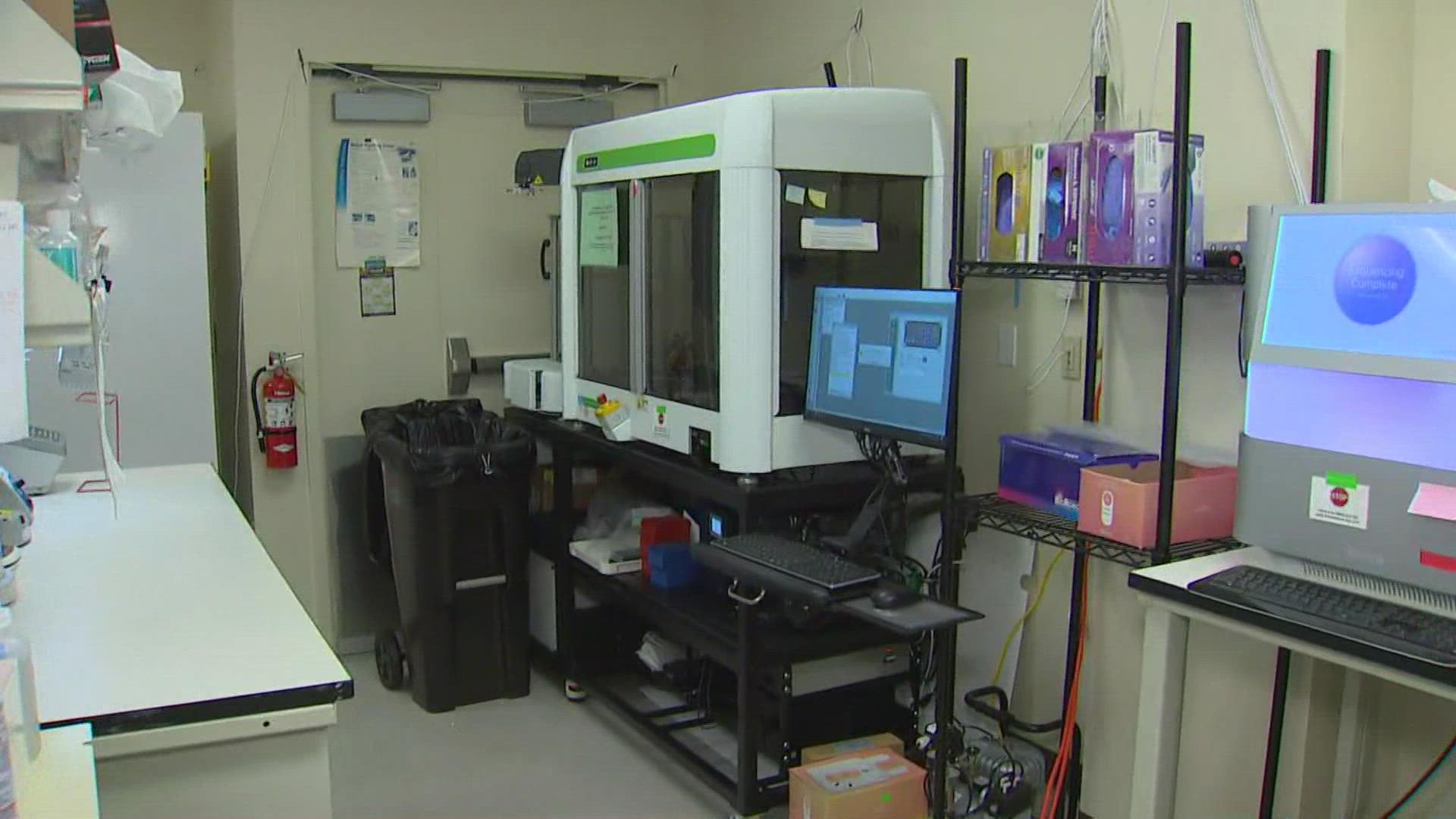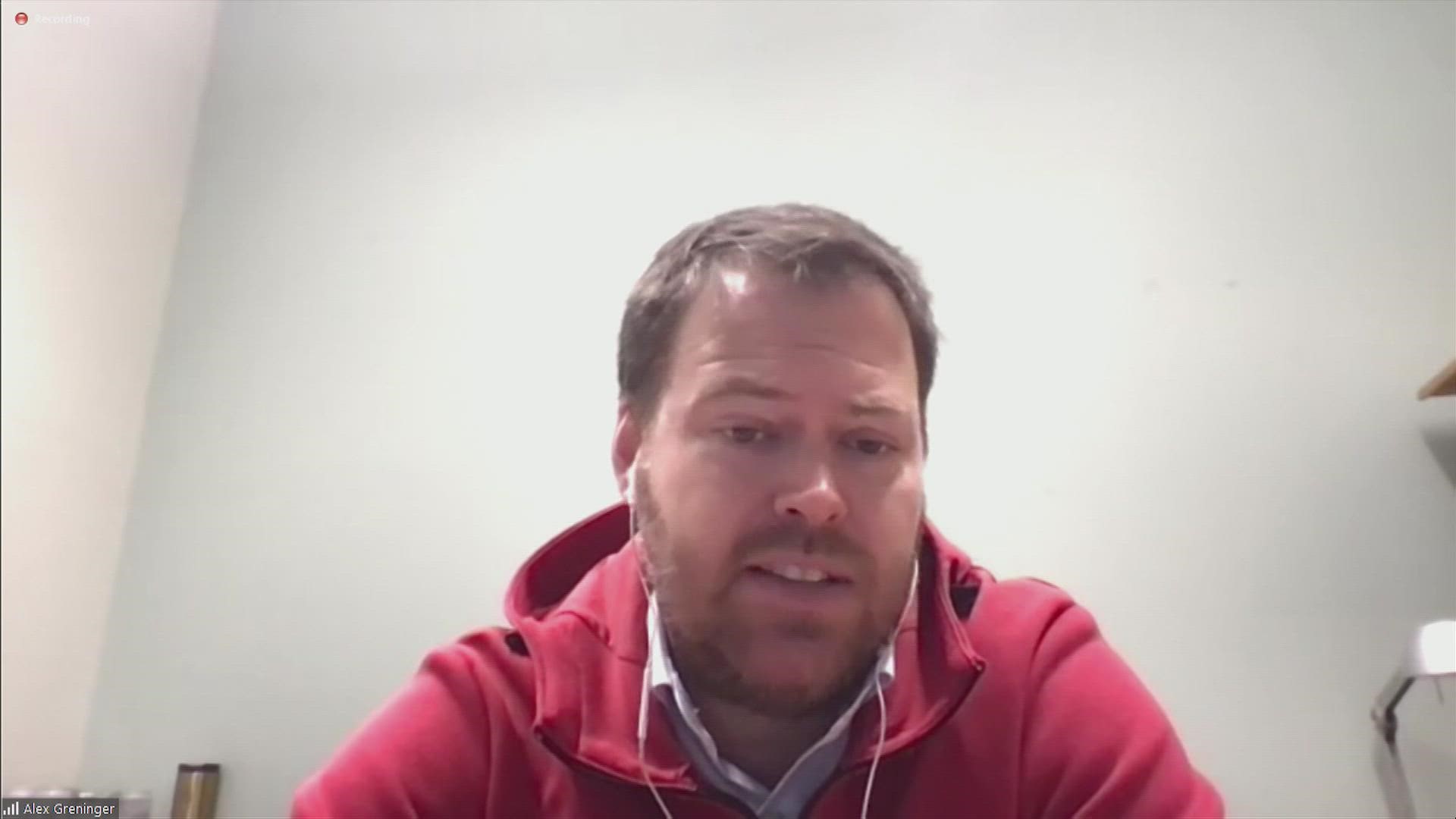SEATTLE — As scientists all over the world race to detect cases of the new omicron variant of the coronavirus, researchers at a UW Medicine lab are leading the way.
The lab at the Department of Laboratory Medicine and Pathology is currently capable of doing 2,000 genetic tests a week. As of Thursday, the lab was on track to do about 90% of that.
"The holidays and supply chain issues have made a difference, but we are confident we will reach that next week," explained Dr. Pavitra Roychoudhury, a research associate in the infectious disease division at the Department of Laboratory Medicine and Pathology.
Given their testing abilities, UW Medicine receives samples from all over the country, and often up to 20,000 in a single day.
Regular PCR and rapid tests cannot detect COVID-19 variants, so more testing and genome sequencing are needed to detect the omicron variant.
The process starts by testing for positive COVID-19 cases.
Roychoudhury said that's been a bit of a problem. Since Washington state has had a low positivity rate, they could need 10,000 tests to get 300 or 400 positive cases.
When researchers find a positive case, they extract the genetic material that makes up the virus to eventually sequence the whole viral genome.
"By getting that information, you can look at the mutations that occur in that virus' genome, compare it to all the other viral genomes that are out there for this virus, and say which variant you are likely to have," explained Roychoudhury.
Genetic sequencing takes time and given the sense of urgency to detect the omicron variant. Researchers are also doing other tests looking at the mutations in the signature pattern of the virus. In the case of omicron, that's the S drop out.
During a briefing Monday, Dr. Alex Greninger, assistant professor in the Department of Laboratory Medicine and Pathology, said almost all of the molecular tests being performed in the state “have at least two targets, so even if there were some sort of mutation in one of these variants that affected one of the targets, the other target would pick it up.” Because of the multiple targets, each molecular test has sort of an “insurance policy” that the variant would have been detected.
Greninger said almost all of the COVID-19 antigen tests target the virus’ nucleocapsid protein, which is “not highly mutated. Most of the mutations in the omicron variant are found in the spike protein.”
The omicron variant has “sort of the same hallmark” as the alpha variant, which is a “small deletion in the spike protein, Greninger explained. This makes rapidly screening candidate omicron variants possible because it is specific to the variant.
Researchers in the UW lab said while they're prepared to detect the omicron variant, they're also concerned with so many unknowns still on the table.
"Every day I check the South Africa case numbers to see how it's spreading in South Africa just to get a feel of what's coming in the future," Greninger told KING 5.
Roychoudhury said if omicron is detected, the first step is to alert state health officials. The lab would also keep the sample to continue testing, even sending it to other labs to see what they find.
The new COVID-19 variant was first confirmed in the U.S. on Dec. 1. Since then, it has been identified in several states.


